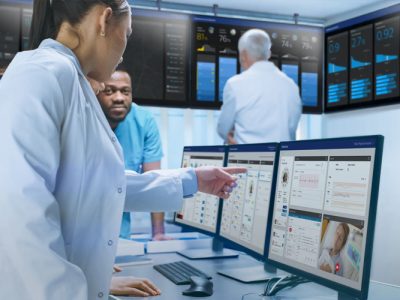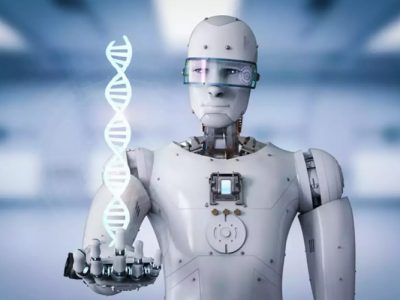
Healthcare Management Revamping the Conventional Systems to Encompass Ethical AI-Powered HealthTech
Healthcare management seeks to bring in continuous improvements in the Healthcare Industry. Artificial intelligence technology is one of the primary impetuses of HealthTech. The recent realization in the industry to implement ethical artificial intelligence has prompted them to adopt brand new techniques. AI-powered healthtech has been the answer to multiple troubles in the past few years, however, in the last few months, the benefits of healthtech became even more apparent.
The determination of the healthcare management to integrate ethical artificial intelligence is leading it to the mindful articulation of morale that is in parallel to humanity. Nevertheless, the industry is also contemplating an inclusive decision-making process. According to the guidelines issued by WHO in mid-2021, the world standard of human rights and the law must be incorporated in the artificial intelligence system. This encourages healthcare management across the world to reconsider their positions in healthTech and remodel them.
The Prime Ethics
Imbibing special algorithms that abide by the six principles drafted by WHO. These principles include identifying human independence, comprehending the concept of public interest by ensuring the safety and wellbeing of the humans, manifesting a transparent and explainable function, assuming responsibility, and lastly elevating the sustainable trait of AI in responsiveness. These are the prime ethics listed by WHO to inspire the healthcare industry to approach AI-powered healthTech. As the first step in implementing ethical artificial intelligence, each jotted down ethics deserve identical attention by the healthcare management.
The Stage of Scrutiny
In a brave move, the healthcare management engages itself in a review process where the artificial intelligence qualities will be evaluated against human values and necessary steps will be followed. This stage is entitled to include medical practitioners, advisors, and other managerial departments of the healthcare industry including a committee that advocates for the stakeholders. Considering patient privacy and taking complicated events, that frequently take place, in mind the review is accomplished and further developments are aimed at.
Training the Professionals
In an attempt to impart the mechanisms of ethical artificial intelligence to healthcare professionals, workshops are organized. Continuous sessions on the occurring circumstances are initiated between the healthcare management and the developers. Informed medical practitioners are cultivated and the healthcare management assumes responsibility to empower the fraternity with the advanced form of healthTech tools that is going to transform the future of healthcare immensely. Accordingly, new algorithms are added to the artificial intelligence technology.
The Governing Body
In the process of developing ethical artificial intelligence concerning healthTech, some supervisors are appointed who are intricately informed about the existing opportunities and suggestions from the medical practitioners. Researchers of medical sciences are also involved in this process to ensure contemporary discoveries are being infused in the new AI-powered Healthtech. The degree of intelligence in healthtech increases with ethical artificial intelligence and so as cautiousness. The oversight committee can help the application to be optimized with the settings and tools that were earlier neglected but had immense advantages.
Risk Prevention Model
Employing big data into artificial intelligence to augment healthtech is an existing practice but a revised report by WHO suggests that the utilization of data should be such that personalized advice is also issued by the ethical artificial intelligence model. Predictive analysis is one of the emerging and budding inventions of healthtech. As informed healthcare management, this technology is used to scale risks of patients in combination with their health history and present medical requirements. The risk of evolving a chronic disease will be successful with the application of predictive analysis. Consequently, technological disruption will be witnessed in diagnosing potential diseases in humans.



















